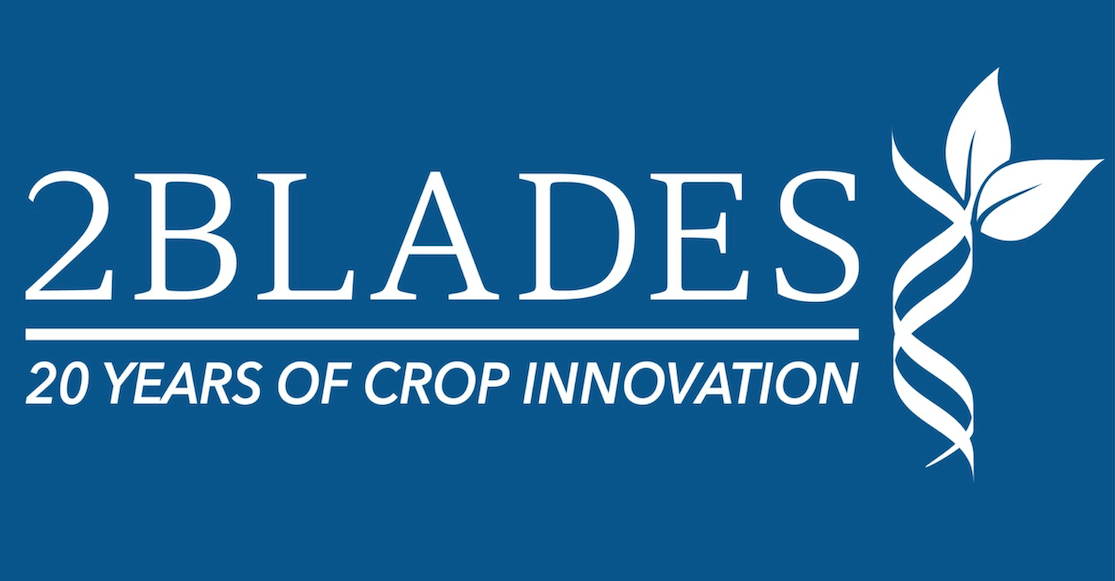The effort is a collaboration with the laboratories of Jeff Dangl, Jonathan Jones, Brian Staskawicz, and Detlef Weigel, internationally renowned leaders in the field. Results of the study will both enhance the understanding of evolutionary processes and provide new insights into improving plant immunity and reducing crop disease:
PALO ALTO, Calif.–(BUSINESS WIRE)–The Gordon and Betty Moore Foundation awarded $2.3M to the Two Blades Foundation (2Blades), a charitable organization that supports the development of durable disease resistance in crop plants and their deployment in agriculture.
Four well-recognized research teams will investigate plant immunity in the United States and Europe. Jeff Dangl (University of North Carolina at Chapel Hill), Brian Staskawicz (University of California, Berkeley), Jonathan Jones (Sainsbury Laboratory in Norwich, UK) and Detlef Weigel (Max Planck Institute for Developmental Biology in Tübingen, Germany) will lead the project at their world-class research institutions.
Understanding plant immunity is essential to helping reduce diseases that can radically alter the production and quality of food. With a rapidly growing global population, losses to important food crops, like potatoes and wheat, can be disastrous. Not only can plant disease have an economic impact, it can affect our health and natural ecosystems. For example, scientists have warned recently that wheat crops are facing a serious threat from a fungal disease that could wipe out the crop if not contained quickly, threatening our global food security. From a more historical time, the Great Famine in Ireland took the lives of more than one million people, and the migration of another one million or more, due to a disease in potatoes commonly known as potato blight.
The research teams will focus on three agricultural plant systems found worldwide: Brassicas (mustard greens and their relatives), which are important model organisms in plant biology; nightshades (potatoes, tomatoes and their relatives); and domesticated wheat and related species.
Plants have evolved a wide array of natural immunity mechanisms against diseases, including receptors that help resist infection from disease-causing microbes.One class of these immune system receptors is known as the nucleotide-binding, leucine-rich repeat (NLR) proteins. This receptor class activates a plant’s defense mechanisms when it recognizes a microbe. NLR proteins are the most diverse proteins encoded by plant genomes, with most plants having the capacity to produce hundreds of different NLR proteins, matching the diversity and adaptability of the microbes encountered by plants.
The enormous diversity of NLR proteins has made their genes difficult to study with conventional genome sequencing techniques. These hurdles have recently been overcome, and using a new highly accurate, fast, and cost-efficient technique, the teams will reveal the diversity of NLR proteins within and across plant species.
“This undertaking is made possible by the key technology developed in the Sainsbury Laboratory,” said Roger Freedman, Chairman of 2Blades. “The aim overall is to provide fundamental information on how plants evolve to resist pathogens and ward off disease.”
As part of the project, the teams will develop a publicly available database containing sequence information on the plant species investigated. This open-access database will help other scientists and agricultural agencies around the world improve disease resistance in plants and better help address food security.
“This research has the potential to be a game-changer in our understanding of how plants combat pathogens in the face of continual evolution,” said Gary Greenburg, program officer at the Gordon and Betty Moore Foundation. “If it is successfully carried out, the project will result in an unprecedented level of fundamental knowledge about the genes that control disease resistance in plants.”
Two Blades Foundation is a charitable organization dedicated to the discovery, advancement and delivery of durable disease resistance in crops. 2Blades aims to produce successful, sustainable, environmentally friendly genetic solutions that increase the supply of safe, healthy food and improve the human condition. In development programs with leading global academic institutions, 2Blades serves as grant maker, program manager, and steward to bring technology advances into practical application. More information can be found at
www.2Blades.org and @2Blades.
Gordon and Betty Moore Foundation fosters path-breaking scientific discovery, environmental conservation, patient care improvements and preservation of the special character of the Bay Area. Visit
www.moore.org or follow @MooreFound.
 2Blades
2Blades